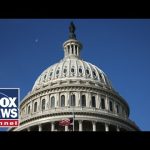The economic debate between Republicans and Democrats continues to ignite strong passions, particularly with President Donald Trump’s recent actions drawing considerable attention. Trump supporters highlight his achievements within just eleven months, contrasting sharply with what they see as a stagnant four years under President Joe Biden. They emphasize major accomplishments like reducing the Venezuelan drug boat threat to near zero, pressuring NATO allies to enhance their defense contributions, and securing key Supreme Court victories. Coupled with successful trade deals and tax reforms such as eliminating taxes on tips, these accomplishments are presented as tangible proof of Trump’s effectiveness and commitment to American prosperity.
Trump’s recent economic strategy pivot—considering the scaling back of tariffs on food imports to ease inflation—signals a willingness to address the cost-of-living challenges facing American families. While skepticism remains about the lasting impact of such moves, some analysts see hope in the broad trend of slowly decreasing prices. This pragmatic approach, including discussions of stimulus checks and market-friendly policies, showcases Republican efforts to listen to and respond to economic realities on the ground, in stark contrast to what many perceive as Democrats’ reflexive reliance on tax hikes and expanded government intervention.
Critics remain wary, questioning whether these measures offer more than temporary relief and urging caution against simplistic economic fixes. Nonetheless, Republicans argue that common-sense solutions, such as balancing tariffs and promoting growth through less burdensome taxation, present a more sustainable path than the typical Democratic playbook of heavy spending and higher taxes. Trump’s willingness to recalibrate policies in response to real-world economic pressures resonates with voters tired of ideology-driven stagnation.
Among the broader themes is a clear partisan divide on economic leadership and innovation. Republicans tout Trump’s record of job creation, manufacturing revitalization, and fiscal responsibility—achievements they say have been overshadowed by a Democrat agenda focused on redistribution rather than growth. Going forward, the economic discourse is likely to remain a defining battleground, where each side champions contrasting visions for American prosperity and financial security.
In this heated atmosphere, the debate over tariffs, inflation, and economic relief strategies reflects deeper struggles over governance and policy effectiveness. While economic challenges persist, the Republican emphasis on flexible, market-oriented measures aims to stand out as a beacon of hope for families navigating uncertain times. If these efforts gain traction, they could reshape the political landscape by demonstrating that economic common sense, not ideological rigidity, holds the key to America’s future success.




